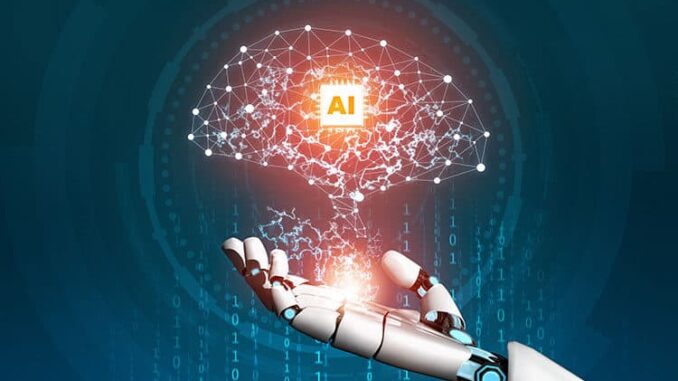
The future landscape of AI technologies is poised for transformative changes that will likely affect various aspects of society, industry, and our daily lives. Here are key themes and trends anticipated in the coming years:
### 1. **Enhanced Personalization**- **Tailored Experiences**: AI’s ability to analyze user preferences and behavior will lead to hyper-personalized services across sectors such as marketing, e-commerce, and entertainment, creating a more engaging and customized customer experience.









– **Adaptive Learning Environments**: In education, AI-driven systems will adapt to individual learning styles and pace, providing tailored educational resources that optimize student engagement and success.
### 2. **Human-AI Collaboration**
– **Augmented Intelligence**: Rather than replacing humans, AI will increasingly serve as an augmentation tool, enhancing human capabilities and decision-making. This will be evident in fields such as healthcare, where AI assists doctors in diagnostics, leaving the complex decisions to human judgment.
– **Creative Partnerships**: AI technologies will collaborate with humans in creative processes, helping to generate ideas, design, music, and art while allowing artists and creators to guide the direction of their work.
### 3. **Regenerative and Autonomous Systems**
– **Smart Cities**: AI will enable the development of smart cities equipped with sensors and data analytics for efficient resource management, traffic control, and enhanced public safety.
– **Autonomous Vehicles**: Continued advancements in AI for autonomous driving will enhance safety, efficiency, and reduce human error in transportation systems, potentially transforming logistics and commuting.
### 4. **Responsible and Ethical AI**
– **Frameworks for Governance**: As AI technologies become more integral to society, there will be a stronger push for ethical guidelines and regulatory frameworks that ensure accountability, transparency, and fairness in AI deployment.
– **Bias Mitigation**: Ongoing efforts to address and mitigate bias in AI systems will lead to more equitable outcomes across various applications, from hiring processes to criminal justice.
### 5. **AI-Driven Healthcare Innovations**
– **Personalized Medicine**: AI will facilitate precision medicine by analyzing genetic, environmental, and lifestyle factors to tailor treatments specific to individual patients, improving outcomes and reducing side effects.
– **Predictive Analytics**: The use of AI for predictive analytics will enable early disease detection and intervention, optimizing healthcare delivery and reducing overall costs.
### 6. **AI in Scientific Research**
– **Accelerated Research Processes**: AI will assist researchers in sifting through vast amounts of scientific literature and experimental data, enabling faster hypothesis testing and discovery.
– **Drug Discovery**: AI algorithms will revolutionize pharmaceutical research, significantly speeding up the process of discovering new drugs and treatment protocols.
### 7. **Natural Language Understanding and Generation**
– **Conversational Agents**: Advances in natural language processing (NLP) will lead to even more sophisticated chatbots and virtual assistants capable of more complex and nuanced interactions, making them integral to customer service, mental health support, and personal productivity.
– **Intelligent Content Creation**: AI will become more adept at generating human-like text, images, and video, raising questions about authorship, copyright, and the role of AI in creative industries.
### 8. **Edge Computing and AI**
– **Reduced Latency**: The shift towards edge computing will enable real-time AI processing and analysis directly on devices, improving the performance of applications in areas such as IoT, autonomous vehicles, and smart devices.
– **Increased Security**: Handling data at the edge can enhance security and privacy by minimizing the amount of sensitive data transmitted to centralized servers.
### 9. **Sustainability and Environmental Stewardship**
– **Resource Management**: AI technologies will support better management of natural resources, optimizing energy use, agricultural practices, and waste management to support sustainability goals.
– **Climate Change Mitigation**: AI will play a crucial role in modeling climate patterns, optimizing renewable energy sources, and contributing to efforts to combat climate change.
### 10. **Inclusive AI Development**
– **Diversity in Development**: Emphasizing diverse teams in AI development will foster more inclusive and representative AI systems, addressing potential biases in technology and contributing to social equity.
– **Global Accessibility**: Efforts will focus on making AI technologies accessible to underrepresented and economically disadvantaged communities, allowing broader participation in the benefits of AI innovations.
### Conclusion
The future landscape of AI technologies is set to be dynamic, encompassing a wide range of applications that reinforce human capabilities and alter societal structures. While the potential benefits are immense, they come with significant challenges regarding ethics, security, and social impact. Organizations, governments, and communities must work collaboratively to navigate these complexities and ensure that AI technologies are developed and deployed in ways that are beneficial, equitable, and sustainable for all. As AI continues to evolve, its integration into various facets of life promises to reshape our world in ways we are only beginning to understand.

Leave a Reply